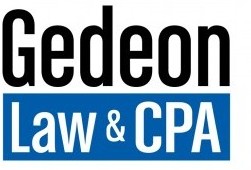How can you claim depreciation expense on land?
As most people know, you cant claim depreciation expense on the value of land used for business or investment purposes.
Why? Because unlike a building, for example, the IRS considers land to have an unlimited life.
But, as we recently showed one of our high income earning clients, with some creative tax planning there is in fact a way to claim de facto depreciation on land.
Our client owns a multi-unit residential rental in Hermosa Beach. As most people know, the value of land in certain parts of Los Angeles can far exceed the value of the building on the land. This is especially true when the building is fairly old but the land is located in a prime area of the city, such as near the beach.
Unfortunately, our client could only deduct the cost of the building over 27.5 years while the main asset, the land, could not be depreciated.
So how was our client able to take a write off for the land?
To start, we worked with our client to set up an irrevocable trust with an unrelated trustee and their kids as beneficiaries of the trust.
From there, we showed our client how to make a gift of only the land, and not the building, to the trust. In our clients case, as a married couple, they could each gift tax free up to $14,000 per child in 2013 plus claim a lifetime gift tax exemption of $5.25M each, for a combined exemption of over $10M. While everyone knows Los Angeles real estate is ridiculously expensive, the value of the land our client transferred was well below the gift tax exemption threshold. Therefore, our client didn’t have to pay any income tax on the transfer to the trust.
At the end of the day, our client continued to own the building while the trust owned the land. Well, thanks to the trust laws, the trust has an obligation to utilize the land in the best interests of the beneficiaries. How does the trust go about fulfilling this obligation? Simple, it charges the owner of the building a fee to lease the land.
By incorporating this strategy, our client was able to take a deduction for leasing the land against the rental income, which they wouldn’t have been otherwise able to do, and shift the taxable income to their children, who are in a much lower income tax bracket. Moreover, in our clients case, the kiddie tax rules didn’t apply to their children. So, at the end of the day, by utilizing this strategy our clients tax savings exceeded 18% annually, a benefit which they can reap for years to come.
If this is strategy is something you or someone you know may be interested in, the don’t hesitate to call Gedeon Law & CPA today to schedule a tax planning consultation.




